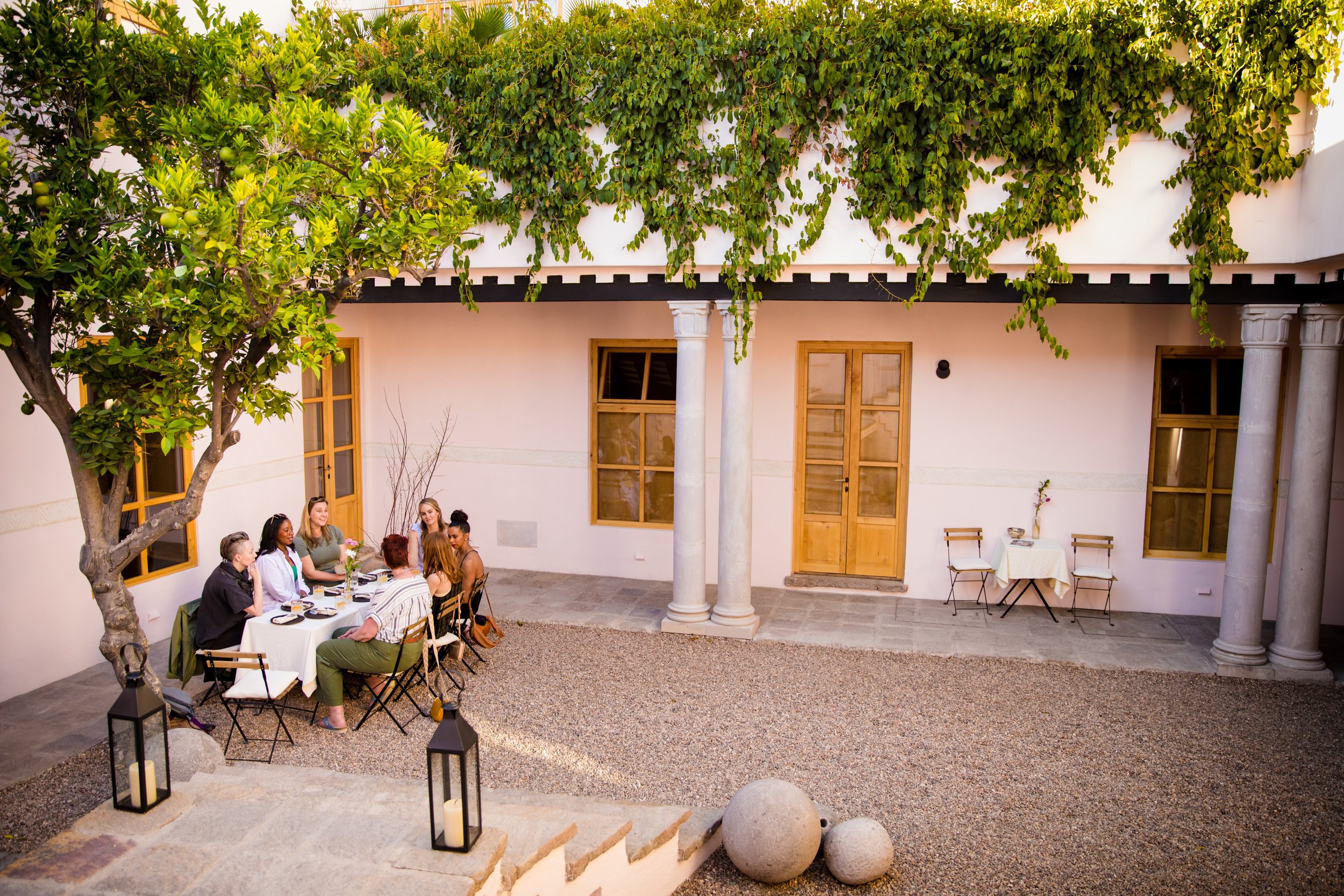How to Build A Reputable Travel Business Your Clients Will Gush About
A major part of any travel advisor's day is spent researching, investigating, assessing and analyzing. Now, this may not be the most exciting part of the job, but we would argue it's the most important conversation we can have — especially for advisors who envision growing their business long-term.
Take athletic coaches for example.
Let's say someone comes to you with the dream of qualifying for the Olympics. Now of course, you're thinking about the end goal of taking home gold, but you know that's not where you start. Before the finish line comes meal plans, exercise regimes, mindset work and all-around preparation.
So imagine you create a training plan for this athlete, but you didn't ask for context or do additional research, like asking:
Which event are you training for?
Where will these Olympics be held?
Who are you competing against? What's their record?
Who has helped athletes accomplish this before?
In order to provide the best possible support and guidance, you need to understand every piece of the puzzle, which includes reaching beyond your sphere of expertise.
We call this doing your due diligence — and it's hands-down the most valuable process your business can perfect.
But First… Research
As professional travel advisors, we're hit with questions daily that we may or may not know the answers to, like which hotel is most comfortable, which food tour includes vegan options and what flight has the most legroom.
— let alone how to book them, which are still available and what will be the best fit for this particular client.
This is the hardest part of our job — knowing what's out there.
So for us to understand what's even possible for each request, we start with research. This part of the process is time-consuming and laborious, and doesn't necessarily get easier with time, because suppliers are always changing and every client is unique.
I've polled countless travel advisors over the years, including those who have been in business for 7-8 years. Even with shortlists of, let's say, dream hotels in Paris, the next client they get ends up being a family of five who needs adjoining rooms and, all of a sudden, their shortlist is useless.
So no matter how much experience you have or how well you know an area, the research never ends, which means the due diligence never ends.
So How Do We Research Effectively?
Before we can start the official due diligence process, we need to know our options. This begins with, and can include all or some of:
Tapping into our own knowledge of Consortias, hotel portfolios, tour companies, etc.
Scouring and posting in our preferred Facebook groups
Going on fact-finding missions and texting close colleagues
Researching blogs to fill in any gaps, ex. great food, things to do, where to shop
Once we've cast a wide enough net, we reel it all in to see what we've got before siphoning out what doesn't work and creating a shortlist.
This stage is all about quick decision-making, because you don't want to deep-dive into every possible option. Instead, you need to understand at a high-level what your client needs so you can filter out what won't work for a variety of reasons.
As professional travel advisors, we go through this process every. single. day. for every single "thing" we recommend — whether that's a hotel, airline, tour operator, rental company, you name it.
Due diligence begins when you've narrowed down your shortlist to 10-15 options.
Our 3-Step Due Diligence Process
Now that you have a shortlist, it's your job as the travel advisor to cut it down and present the best 2-3 options to your client. And this process isn't just about finding a lower price or a better location. These shortlist options check all the boxes, and now you're generally wondering…
Which one is the best? How do I decide? Enter due diligence.
Step 1: Find Vetted Suppliers
At this stage, you're trying to discover who in the industry has already given this supplier a thumbs up. Typically, advisors turn to Consortia websites and supplier portfolios to see who's been given their stamp of approval, because they have their own list of acceptable parameters and quality assurances we know we can trust.
This is also when you learn if they have other industry affiliations to prove their status or if they're well-reputed by others.
Step 2: Assessing Personal Experience
This step of the process is crucial, and can be difficult, knowing that you yourself cannot visit every destination, stay in every hotel or experience every tour. Take hotel research, for example — you want to know…
Have we personally been there or used their company in other locations?
Have any of our colleagues stayed there?
Have our clients stayed there before?
Do we know anyone from this hotel?
With the right support network, you'll likely be able to say "yes" to one of these questions, and then tap into this knowledge, insight and experience with your client's profile in mind.
Step 3: Scouring The Internet
If you've made it this far in your due diligence process and you're still undecided, you're likely between a few final options. For the last step, we recommend using the power of the internet to dive deeper. Take a tour operator, for example:
How professional does their website look? Are their photos any good?
Do they have social media accounts? What do they post? Are they active?
How quickly do they respond to emails? In what tone? And with how much detail?
How a company presents itself online can say a lot about its service offering. If you look into customer reviews, we recommend starting with companies that have a 4.5-5 star rating, and then filter by 3-4 star reviews. These tend to include constructive concerns so you can watch for red flags relevant to your client's profile.
Due diligence is time consuming and oh so necessary. Check out The Hive, a platform to not only optimize this process and make it more enjoyable, it’s going to elevate the process for everyone!




